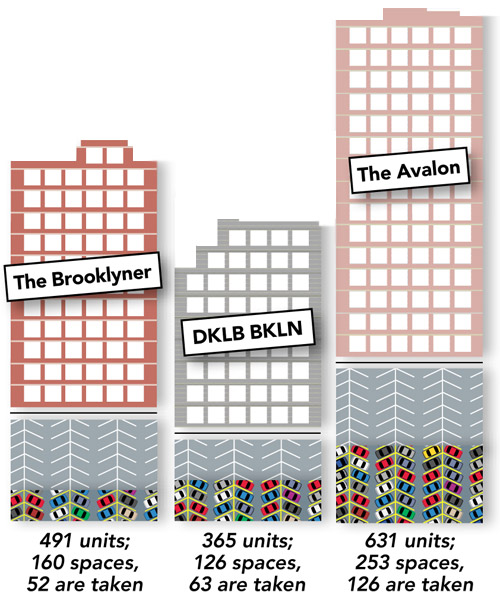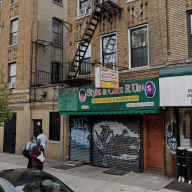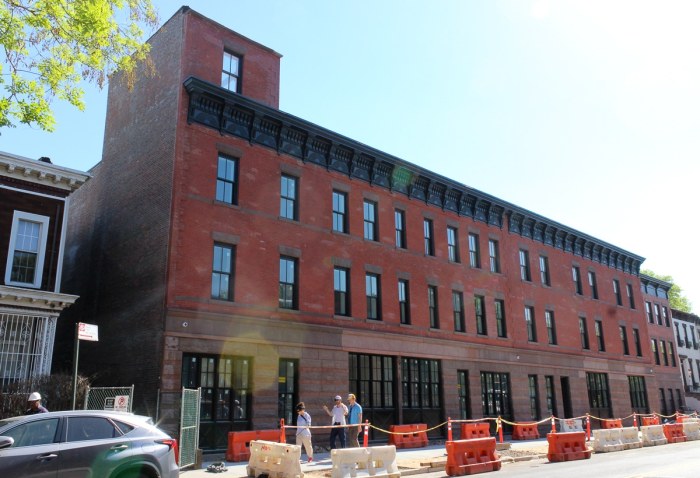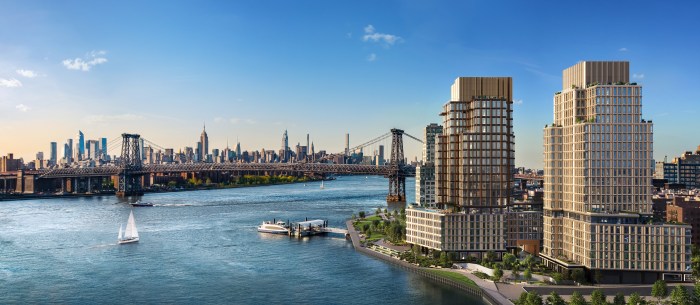The city wants to drastically reduce the number of parking spaces required at Downtown residential developments — elating both builders and transit advocates who claim bulky garages raise rents and are under-used wastes of space.
Under the Department of City Planning’s proposal, which will likely be presented within a few months, Downtown would spearhead a city effort to cut the number of parking spaces required for new market-rate housing developments and completely eliminate mandatory parking at below-market-rate buildings.
“Every developer out there would love to see Brooklyn with reduced parking minimums,” said David Behin, a partner at MNS, the real-estate company that marketed the Furman Street condo One Brooklyn Bridge Park. “At the end of the day, it makes development harder to do.”
Real estate investors say that the city’s current rules create half-empty car depots.
At the 42-story Avalon Fort Greene, only half of its 253 spaces are taken. The Brooklyner, DKLB BKLN, and the Oro reported similar vacancies.
David Kramer, principal at Hudson Companies, called the current zoning rules insane.
“In certain locations it’s great to have parking and it’s a profit center, but other locations it becomes prohibitively expensive,” aid Kramer, whose J Condominium in DUMBO has 267 units and 320 parking spaces — but only 37 percent of tenants actually rent them.
Zoning rules in parts of Downtown require off-street parking for as much as 50 percent of units. Even though some spots that aren’t used by building residents become hourly parking or get leased by neighbors, supporters of the city’s plan say there are simply too many vacant parking spaces.
City reps acknowledge that current parking rules can also be a barrier to the development of affordable housing, since builders can’t recoup their costs if residents can’t afford to lease the spaces.
Downtown will be one of the city’s first neighborhoods to consider parking reforms, as urban planners work to shift housing growth to denser, mixed-use areas.
But not everyone is on board with parking reductions.
Prospect Heights residents are outraged that the developer of a 55-unit apartment across from the Barclays Center doesn’t want to include parking — claiming that new tenants will take up street parking in an area that will soon be flooded with arena crowds.
Reducing parking requirements might rile some motorists, but it has put transit activists and wealthy developers on the same side.
“We’re a very transit rich city,” said Kate Slevin, executive director of the Tri-State Transportation Campaign. “The idea that we require a certain amount of parking construction instead of a contribution to the transit system is puzzling.”
Reach Kate Briquelet at kbriquelet@cnglocal.com or by calling her at (718) 260-2511.























